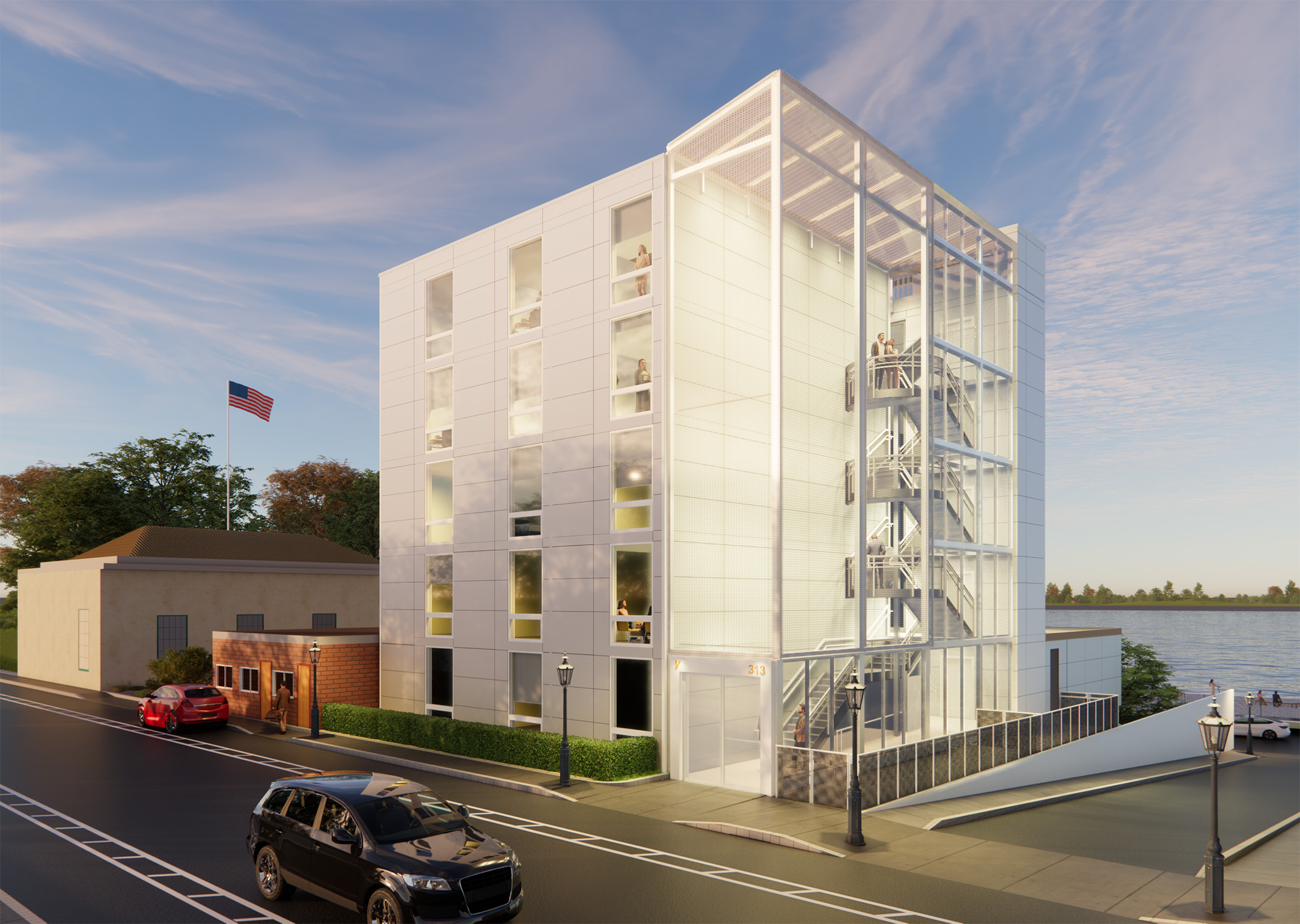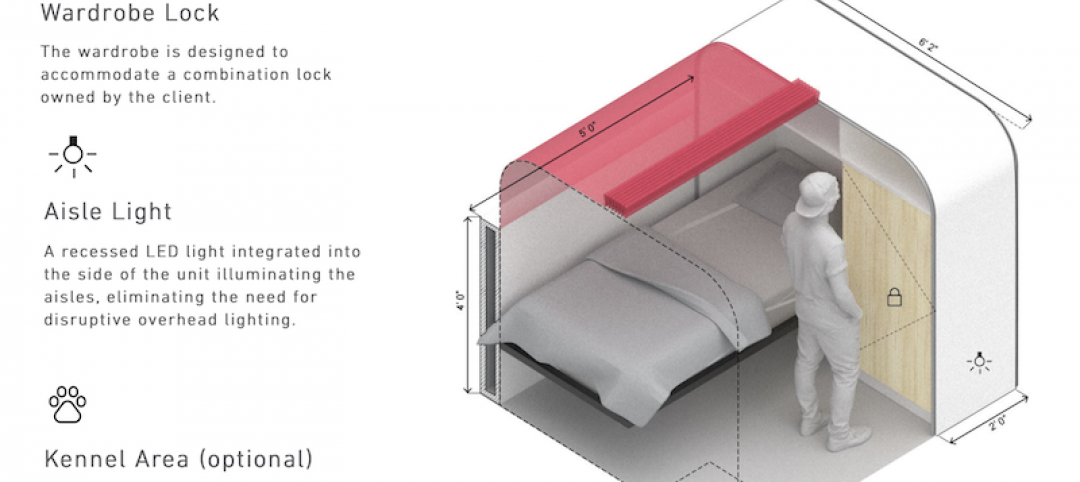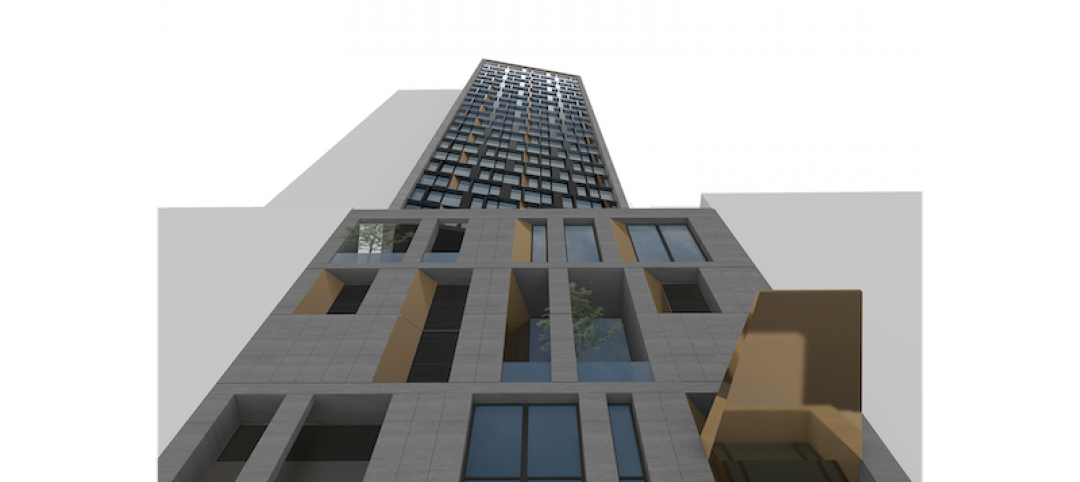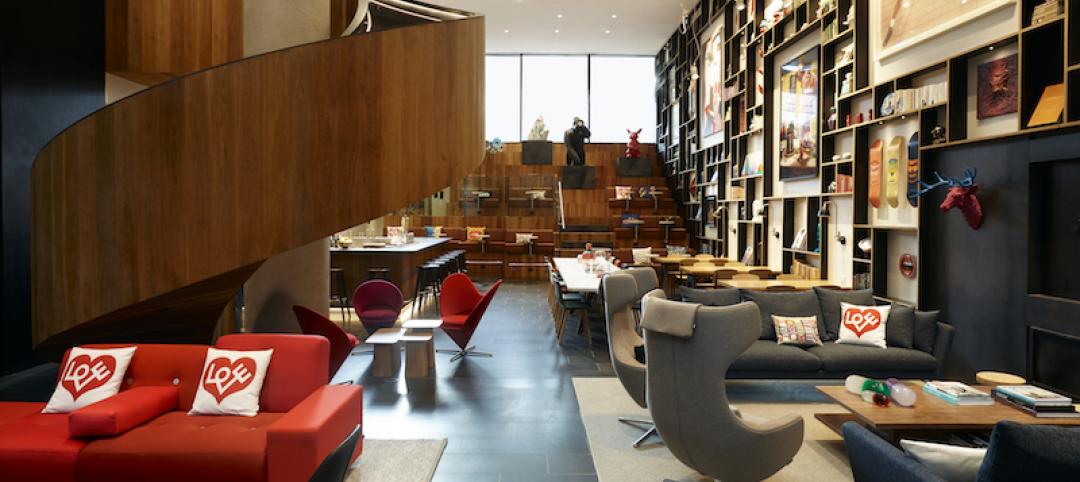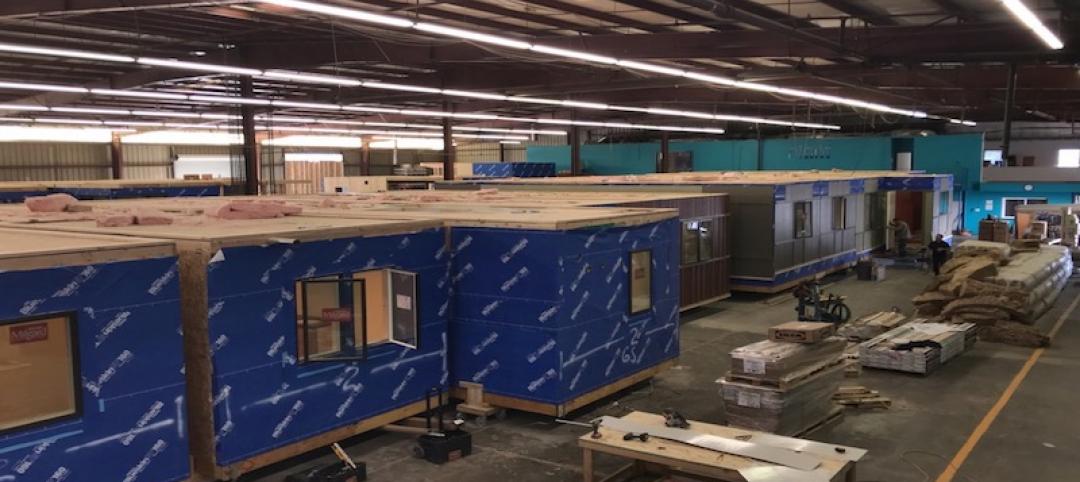Investment firm Mastry Ventures and LENx, the venture arm of homebuilder Lennar, have co-invested in Vessel Technologies’ next-generation housing product. Vessel, a housing product development company, aims to cultivate a pathway to creating attainable housing across the country.
The company’s housing system is focused on “reimagining the apartment building as a consumer product by creating exciting, sustainable, and user-centric housing at attainable prices,” according to Vessel. This is done by prefabricating wall and ceiling components in Vessel’s own manufacturing facility—cutting costs and time compared to traditional construction methods.
Vessel Technologies’ All-Electric Prefab Building System
The Vessel system is 100% electric; solar panels affixed to the rooftop deliver all of the power required for occupants. With the company’s aim for sustainability, Vessel uses no paint and instead utilizes a proprietary recyclable wall panel system. According to Vessel, its facade system is also twice as energy efficient as built-to-code alternatives.
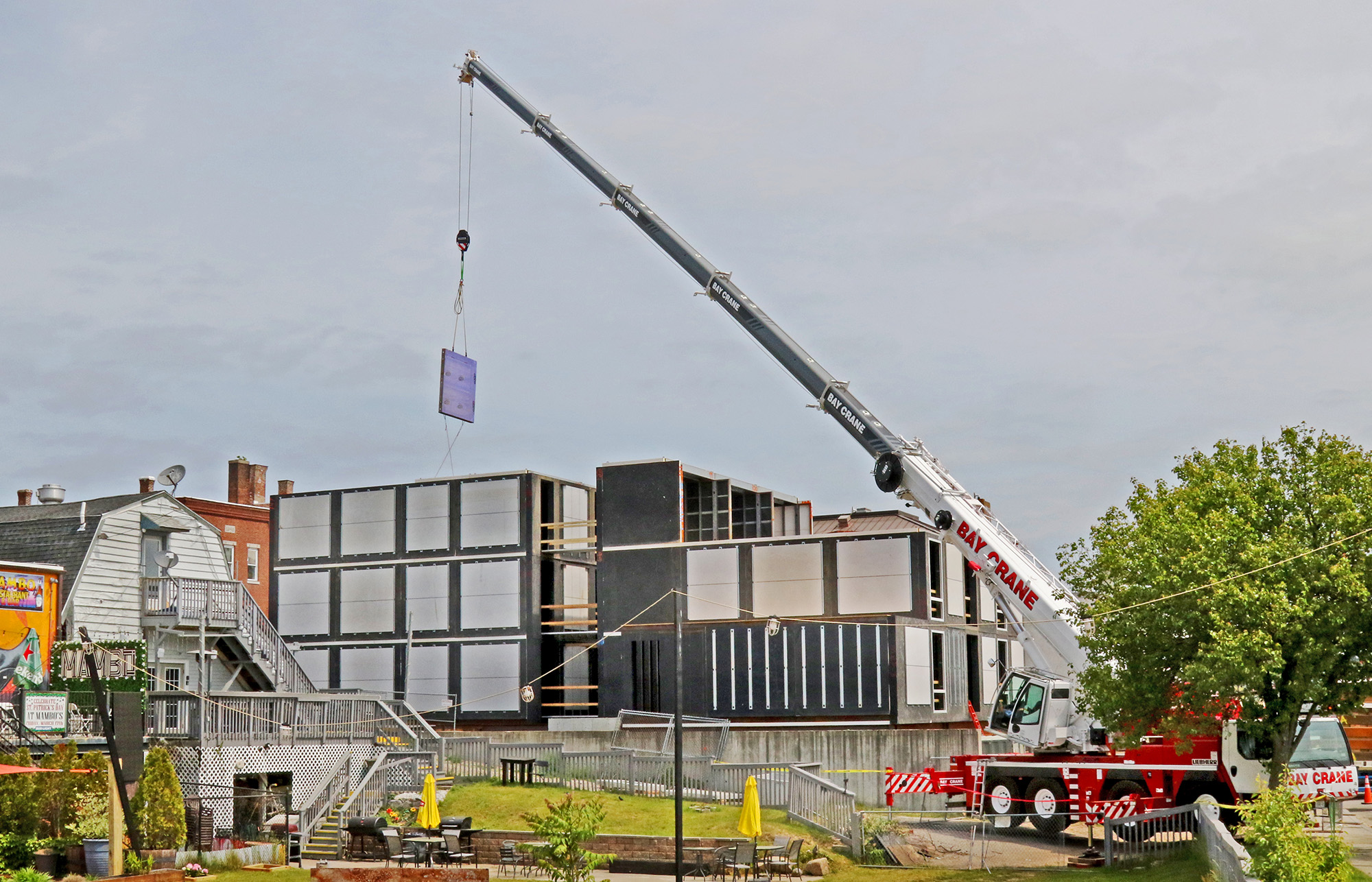
“Vessel represents a whole new category of housing, innovative in every way, to fill a tremendous void: the dearth of truly excellent, deeply desirable and economically accessible rental homes,” said Sam Landman, Co-Founder and Managing Partner of Mastry Ventures.
The investment in Vessel Technologies by Masty and Lennar will allow the product company to accelerate its efforts of providing high-quality buildings, from rental housing to hospitals and universities. Vessel touts its patented system’s seamless design, with operable pieces that smoothly fit together.
Based in New York City, Vessel currently has 12 projects under development throughout the Northeast—all of which are targeted to be net zero. The company’s building materials are sustainable, fire-resistant, and aim to pair well with proprietary smart tech software.
The software—utilizing the company’s own operating system, vOS—acts as a virtual “super” that monitors the building’s hardware, energy demands, and water usage. Additionally, the system includes hundreds of sensors and electro-mechanical devices to manage a unit’s temperature, air quality, security, lighting, and entertainment systems, according to Vessel.
Related Stories
Modular Building | Mar 17, 2020
Danish hospital is constructed from 24 steel frame modules
Onsite construction was completed in two weeks.
Modular Building | Feb 16, 2020
On the West Coast, prefab gains ground for speedier construction
Gensler has been working with component supplier Clark Pacific on several projects.
Modular Building | Nov 18, 2019
A modular solution to help reduce homelessness
DOME is a Perkins and Will-designed prototype whose goal is to provide bridge housing to the unsheltered.
AEC Innovators | Aug 13, 2019
Stacking the deck: Marriott International embraces modular construction
The hotel giant has more than 50 projects in the works that incorporate prefab guestrooms or bathrooms.
Modular Building | Jul 3, 2019
World’s tallest modular building rises in Singapore
The state has been pushing for improvements in construction management.
Modular Building | May 13, 2019
This Marriott is poised to take over the title as the world’s tallest modular hotel
Danny Forster & Architecture designed the building.
Sponsored | Modular Building | Jan 22, 2019
Folsom Hotel opens five months early using modular construction
Early check in? With modular construction the answer is yes!
Modular Building | Oct 31, 2018
Europe’s citizenM is trying to crack into the U.S. hotel market with steel-framed modular construction
Projects in several cities are in various stages of development.
Modular Building | Oct 12, 2018
DeSimone Consulting Engineers designs the tallest modular hotel in the United States
The hotel was originally designed as a cast-in-place concrete structure.
Modular Building | Sep 25, 2018
Amazon invests in a prefab module supplier
Los Angeles-based Plant Prefab targets single- and multifamily construction.



